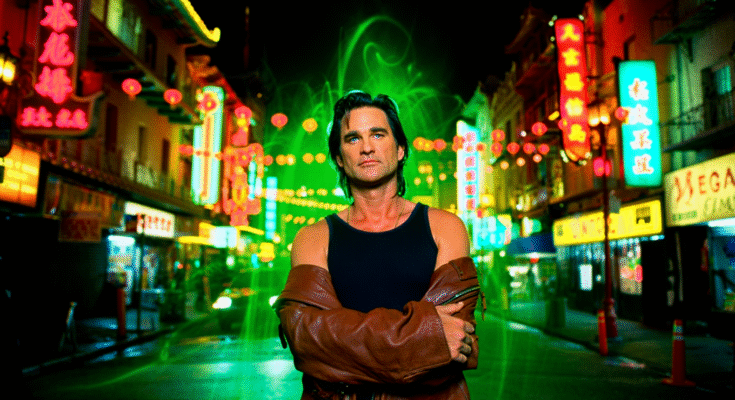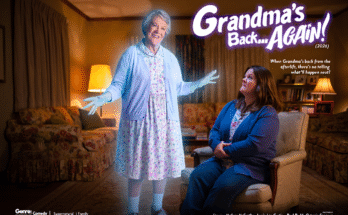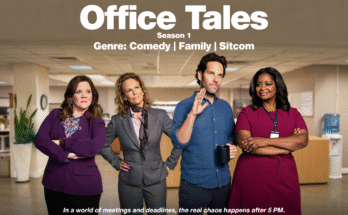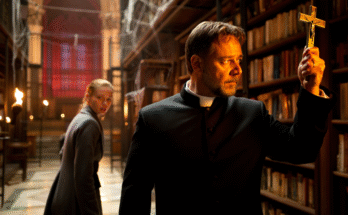Nearly forty years after Jack Burton’s rig first rumbled into San Francisco, Big Trouble in Little China 2 barrels back onto the screen like a long-lost myth that refuses to die quietly. This sequel had every chance to stumble under nostalgia’s heavy weight, yet instead it strides boldly into Chinatown’s shadowed streets, grinning with swagger and ready for chaos.
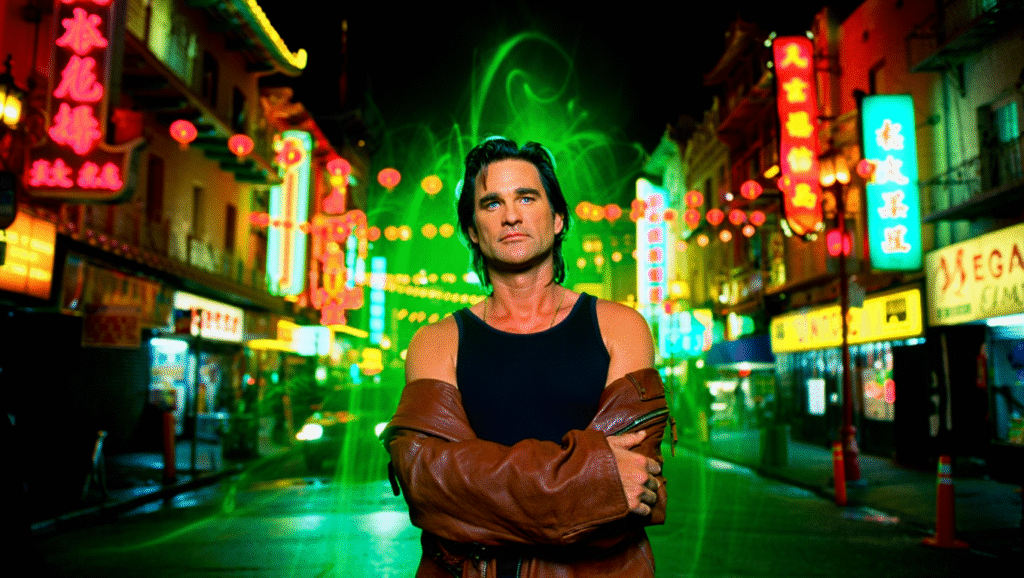
Kurt Russell returns as Jack Burton, older, grizzled, but still carrying that irresistible mix of bravado and buffoonery. Time has carved lines into his face, but his voice still rattles with the same reckless confidence. Russell doesn’t play Jack as a parody of his younger self — he leans into the weariness, letting the absurdity of his heroics crash harder against the reality of a man who should probably know better.
The story wastes little time reawakening the mystical pulse of Chinatown. When an ancient sorcerer emerges from the ashes of forgotten lore, San Francisco becomes a pressure cooker of arcane storms and gangland rivalries. Secret societies crawl out of the shadows, spellcasters whisper old curses, and the neon-lit streets become a battleground where magic and bullets clash without pause.
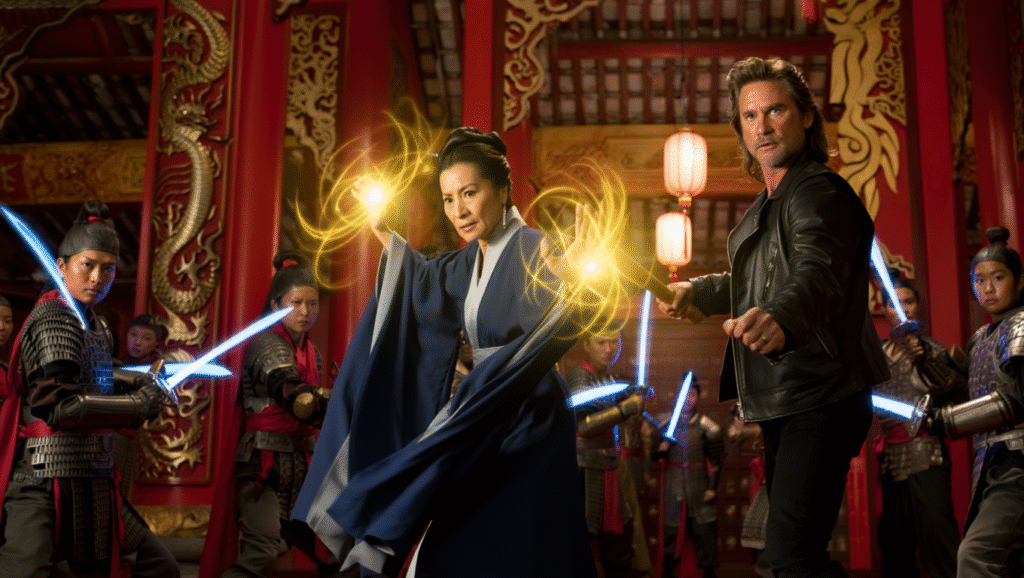
Michelle Yeoh brings a commanding presence as a sorceress who bridges the old world’s mysticism with a sharp modern edge. She is not merely Jack’s ally but his counterbalance, slicing through his bluster with quiet wisdom and devastating skill. Watching Yeoh hurl incantations and unleash balletic combat is worth the ticket alone, and she elevates every scene with elegance forged in fire.
Dennis Dun’s return as Wang Chi feels like a homecoming. Decades may have passed, but his loyalty remains intact, and his chemistry with Russell rekindles the heart of the original film. Together, they slip back into the rhythm of unlikely brotherhood — Jack the accidental hero, Wang the grounded warrior. Their dynamic is the soul of the sequel, proof that some friendships transcend even time’s grip.
The action is as outrageous as fans could hope for: explosive martial arts showdowns, gravity-defying duels against armored spirits, and a climactic battle that transforms Chinatown into a kaleidoscope of fire, lightning, and myth. Practical stunt work blends seamlessly with CGI flourishes, keeping the spectacle tactile without sacrificing scale. The film embraces its pulp roots, refusing to apologize for its larger-than-life theatrics.
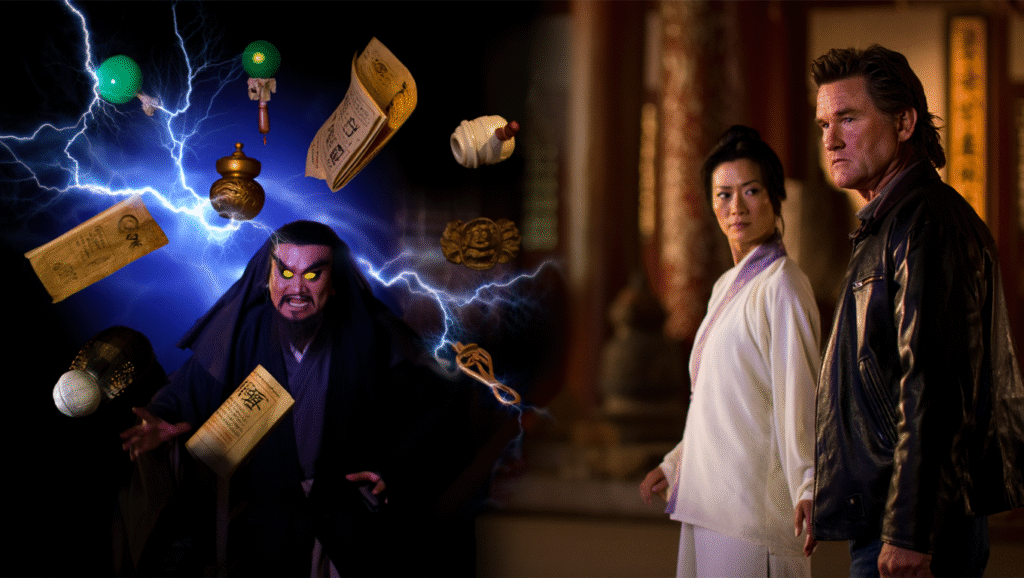
But just as important as the spectacle is the humor. Jack’s bumbling confidence, forever walking the line between luck and disaster, remains the comedic backbone. The film leans into the absurd, finding laughs in magical misunderstandings, culture clashes, and Jack’s eternal disbelief that he’s once again at the center of supernatural calamity. It’s self-aware without ever mocking its own mythology.
Directorially, the film balances respect and reinvention. The Chinatown it depicts is not merely a backdrop but a character in itself, layered with history, secrets, and cultural weight. By digging deeper into the mysticism and community at the story’s core, the sequel avoids being just a retread. It’s bigger, stranger, and more attuned to the spiritual undercurrents that made the original such a cult classic.
Kurt Russell shines brightest in moments of quiet vulnerability, when Jack admits — if only for a fleeting second — that he may not have many more fights left in him. It gives the chaos a grounding humanity, reminding audiences that even legends fade, though not before they raise one last storm.
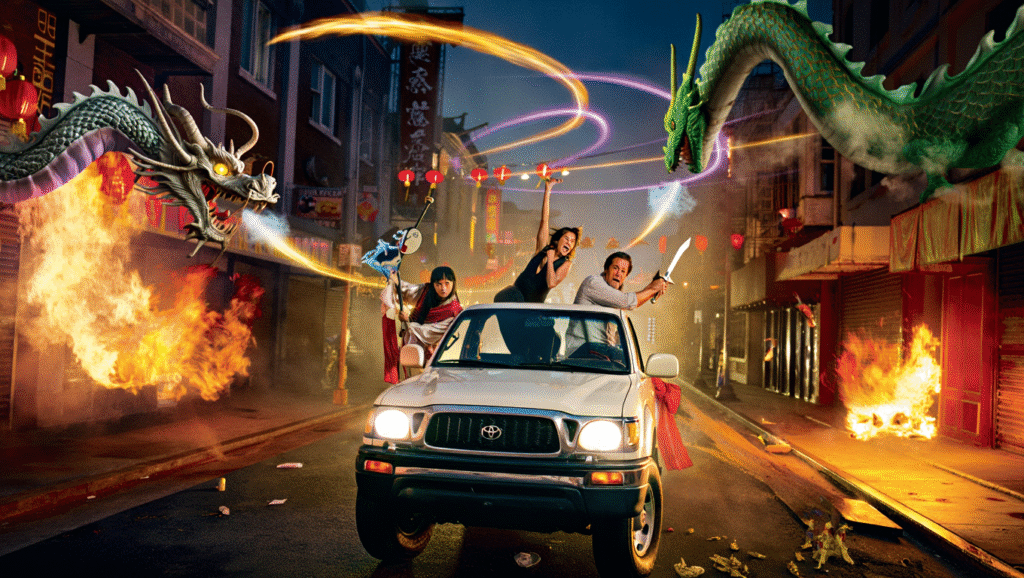
If there’s a flaw, it’s that the film sometimes overreaches, piling on subplots and magical lore to the point of clutter. The pacing lurches in places, as though too eager to deliver everything fans could possibly want in a sequel. Yet the sheer energy of the cast and the joyous embrace of absurdity keep it from collapsing under its own weight.
Ultimately, Big Trouble in Little China 2 delivers exactly what its title promises: bigger trouble, louder laughs, and a return to a world where the line between the ridiculous and the sublime dissolves completely. It’s not perfect, but it doesn’t need to be. Like Jack Burton himself, it barrels forward on sheer audacity, daring the audience not to have a damn good time.
